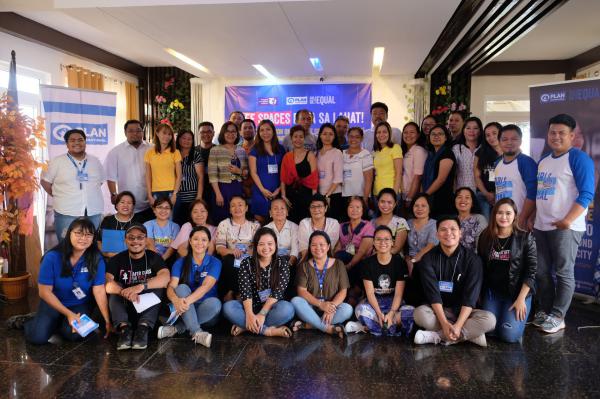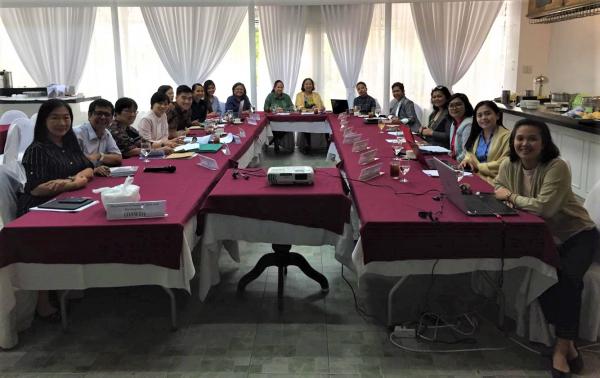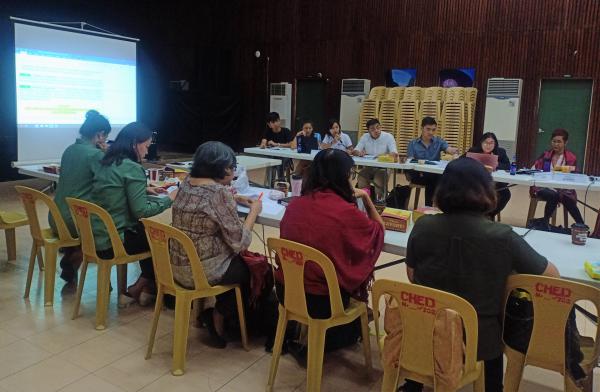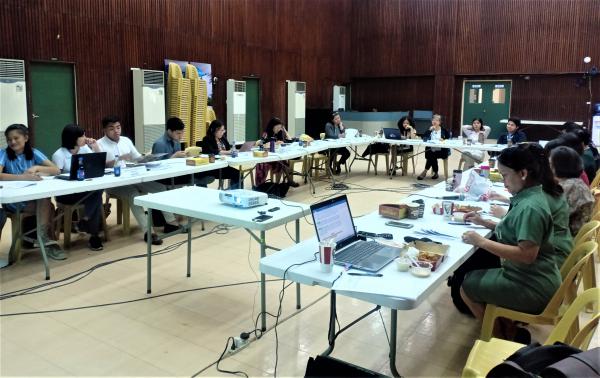What’s Next for the Safe Spaces Act?
The Philippine Commission on Women leads the development of the implementing rules and regulations (IRR) of Republic Act 11313 or the “Safe Spaces Act.” The IRR will guide not only government offices in enforcing the new law but also private entities with specific mandates under the law, and the general public.
President Rodrigo Roa Duterte signed the Safe Spaces Act (Republic Act 11313) on April 17, 2019. The law took effect on August 3, 2019 and Section 38 of the law tasked selected government agencies and women’s organizations to draft the IRR within 90 days after it took effect.
The PCW convened a Technical Drafting Committee (TDC) that currently works on four thematic clusters based on the different contexts of sexual harassment defined in the law: workplace; education and training institutions; online; and streets and public spaces. Each thematic cluster is tasked to clarify definitions and the wordings of the law, stipulate concrete actions for agencies, and identify and address possible loopholes in its implementation.
“Our goal is to have the IRR approved by October 28, 2019 which is earlier than the 90-day timeline set by the law. And since the law is national in scope, we also conducted a series of regional consultations in various areas like Baguio, Cebu, Pampanga, Davao, Cotabato, Masbate, and the National Capital Region,” PCW Deputy Executive Director Maria Kristine Josefina G. Balmes shared.
The TDC is composed of the following: PCW, Commission on Higher Education, Commission on Human Rights, Department of Health, Department of Information and Communications Technology, Department of Labor and Employment, Department of the Interior and Local Government, Department of Social Welfare and Development, Land Transportation Office, Metro Manila Development Authority, Philippine National Police, Technical Education and Skills Development Authority, Democratic Socialist Women of the Philippines (DSWP), Sentro ng Alternatibong Lingap Panlegal (SALIGAN), Women’s Legal and Human Rights Bureau (WLHRB).
Aside from the member agencies of the TDC and the three non-government organizations that work in women’s human rights which are part of it, the PCW also partnered with Plan International Philippines, especially in convening the regional consultations.
Safe Spaces Act
The Safe Spaces Act defines gender – based sexual harassment in streets, public spaces, online, workplaces and education or training institutions and lays down corresponding penalties.
In the draft IRR, public spaces refer to areas, regardless of ownership, openly accessible or offered to be accessed by the public, such as streets and alleys, roads, sidewalks, public parks, schools, buildings, schools, churches, public washrooms, malls, bars, internet shops, restaurants, transportation terminals, public markets, spaces used as evacuation centers, government offices, public utility vehicles as well as private vehicles covered by app-based transport network services and other recreational spaces such as, but not limited to, cinema halls, theaters and spas.
Gender-based and public spaces sexual harassments includes Catcalling, wolf-whistling, unwanted invitations. misogynistic, transphobic, homophobic and sexist slurs; persistent uninvited comments or gestures on a person’s appearance; relentless requests for personal details; statement of sexual comments and suggestions; public masturbation or flashing of private parts, groping, or ny advances, whether verbal or physical, that is unwanted and has threatened one’s sense of personal space and physical safety.
While online, gender-based harassments includes acts that use information communication technology in terrorizing and intimidating victims through Physical, psychological, and emotional threats, unwanted sexual misogynistic, transphobic, homophobic and sexist remarks and comments online whether publicly or through direct and private messages; Invasion of the victim’s privacy through cyberstalking and incessant messaging; Uploading and sharing without the consent of the victim any form of media that contains photos, voice, or video with sexual content, among others.





